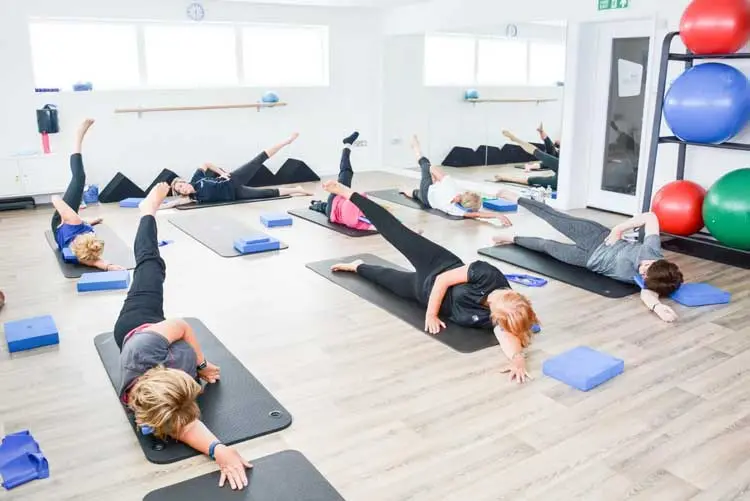What is Achilles Tendinopathy?
Achilles tendinopathy refers to any problems with the Achilles tendon, the part of your body that connects the calf muscle to your foot via your heel bone.
The ‘-opathy’ part refers to a disorder of the tendon and is used as an umbrella term to cover a range of issues that can affect the Achilles tendon.
Problems with the Achilles Tendon are graded:
- Grade I: Mild strain.
- Grade II: Moderate strain.
- Grade III: Complete rupture.

What causes Achilles Tendinopathy?
A tendinopathy results when the forces placed through the tendon exceed it’s ability to function.
Achilles tendinopathy can be caused by several factors:
- Overuse of the area
- Traumatic injury
- Poor foot biomechanics
- Sudden changes to sports or training patterns
- Improper footwear
- Calf weakness or tightness
The most common cause is repetitive ‘micro’ trauma to the tendon or overuse. The repetitive strain can result in a chronic Achilles tendinopathy, where there is a gradual breakdown of the tissue of the tendon. You might have heard it as tendinitis previously. It can either affect the middle portion of the tendon or the point where the tendon inserts into the heel bone.
What might Achilles Tendinopathy feel like?
- Mild to moderate pain and stiffness around the back of the heel in a grade 1 or 2 strain. The more severe the strain, the more severe the symptoms would tend to be.
- Swelling or a small lump on the Achilles tendon in a grade 1 or 2 strain.
- Tightness into the calf muscles.
- A complete rupture (grade 3) is often characterised by a ‘pop’ with immediate pain and an inability to bear weight through your foot.
How do the symptoms of Achilles Tendinopathy progress?
- A mild Achilles tendinopathy can resolve itself with relative rest and POLICE pretty quickly.
- A more moderate strain or mild strain that lasts more than a few weeks, usually needs some input to fully resolve.
- If left untreated, Achilles tendinopathies can develop into a chronic problem leading to permanent changes to the structure of the tendon, with scar tissue forming. In non-traumatic cases, if you don’t do something to address the cause, it is unlikely resolve.
- A grade 3 complete rupture will require surgery or conservative management in the form of immobilisation in a special boot or cast.
How is Achilles Tendinopathy diagnosed?
- A Physiotherapist will be able to diagnose an Achilles tendinopathy from a thorough assessment. This will include taking a detailed history to identify the potential cause of the problem, analysing muscle strength and length, looking at your foot biomechanics, looking at your kinetic chain (so this is the link between your foot, knee & pelvis to see how they work together), linking this into your activity levels and sports.
- Occasionally, you may be referred for an ultrasound scan if the Physio is concerned about a possible tear or rupture to the tendon. This is normally quite obvious when it happens but we’ve certainly had a few through the clinic over the years that we’ve diagnosed with a complete rupture and sent straight to A&E.
What is the best treatment for Achilles Tendinopathy (Grade 1 & 2)
- Addressing the cause in non-traumatic cases is key. Your Physiotherapist will be able to help you with this once they’ve identified the root of the issue.
- Physiotherapy or Sports Therapy – this will help reduce scar tissue formation and improve the rate of healing. It may consist of manual soft tissue work, electrotherapy, taping and specific exercises.
- Selective rest – avoid any high impact activities and take a break from any aggravating sports or activities to allow the injury to recover.
- Ice – helps to manage the pain and swelling
- Painkillers – allows you to keep moving and do all your Physio exercises!
- Orthotics – if foot biomechanics are contributing to your Achilles problems, a GaitScan to identify any issues and a pair of orthotics will address this to stop the problem reoccurring.
Prognosis for Achilles Tendinopathy
- With early and appropriate treatment, Achilles Tendinopathy issues tend to resolve within 8-16 weeks.
- Chronic problems may take up to 6 months to resolve.
Products that may help Achilles Tendinopathy
- Foam Roller
- K-Tape
- Ice pack
- Orthotics
Can Achilles Tendinopathy be prevented?
Maintaining general health and fitness, maintaining muscle strength and flexibility throughout your whole body, can be a good way of preventing injuries such as tendinopathies. Paying special attention to your training regime and programme if you take art in regular sports such as running, is really important. Too much, too soon, too far, too often, can all increase the risk of a tendon problem. Allow your body time to adjust to the demands you place upon it.
If you do start to feel a niggle, don’t ignore it. The longer you leave problems like this without addressing the cause, the more severe they can become.
Think about your footwear too, wearing good quality, supportive footwear at all times can help prevent Achilles tendinopathy.
Related injuries
- Achilles tendon rupture
- Calf Muscle Tear
- Compartment Syndrome
- Plantar Fasciitis
- Running injuries
If you’ve suffered an injury or pain in your Achilles tendon, call now for an accurate diagnosis and comprehensive treatment programme, or book your appointment online.SaveSave
SaveSave



